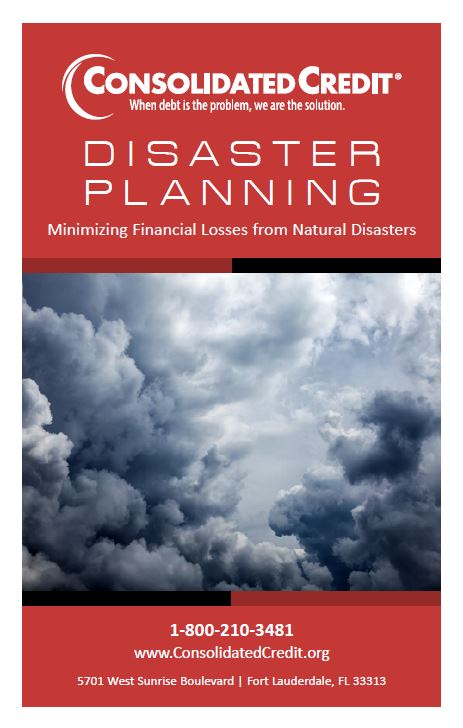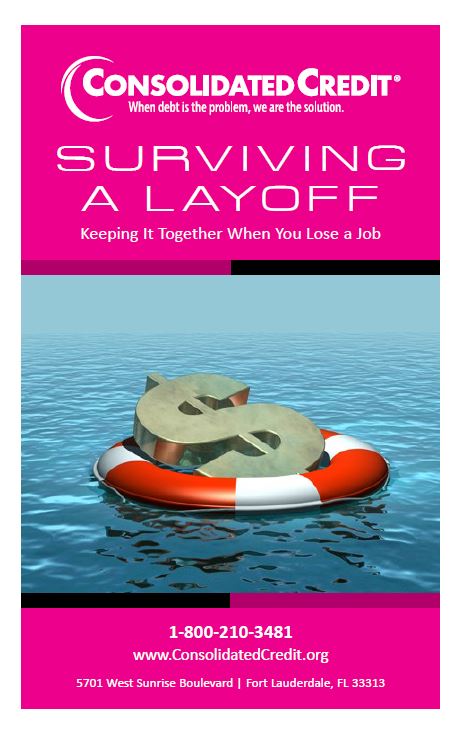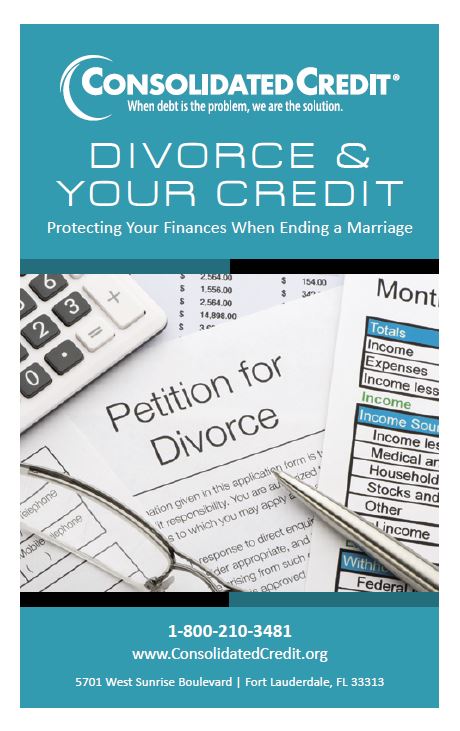Financial emergencies to prepare for
Medical bills
Large medical bills can leave you both worried about your health and concerned about your financial future. Ideally, you have insurance that can cover a large portion of the cost.
But with or without insurance, there are some procedures and medications that will be expensive. For example, an ongoing condition that requires monthly medication may have a high out-of-pocket cost even if the insurance company pays for part of it.
There are a few things you can do to mitigate the possibility of high healthcare costs. First, learn about your insurance options.
You may be able to get insurance through your employer. Talk to your human resources manager to learn more.
If your employer doesn’t offer health coverage or you are self-employed or unemployed, you still have insurance options. Join HealthCare.gov to learn more about what types of insurance you can get.
In the case of a sudden illness, it pays to be honest with your providers about your financial situation. Talk to your doctor about what you can realistically afford.
If you can’t afford an important treatment or medication, there may be another way. You could get treated differently or you could get on a payment plan that would make covering your healthcare easier.
You won’t know unless you ask. Money conversations nearly always feel taboo, and it can feel especially strange when speaking with your healthcare provider. But it’s essential to receive the healthcare you can actually afford.
WARNING: Do not avoid medical care due to high costs. This can result in health problems that cost more to fix later.
The Consumer Financial Protection Bureau (CFPB) recently ruled that medical bills can no longer be reported to credit bureaus. This means if your medical bills go to collections, your credit score won’t be impacted. While it’s crucial to address your medical debt responsibly, this change gives you more flexibility to find a payment solution that works for your financial situation.
For more information, read through our “Medical Bills and Credit Cards” booklet.
Booklet
Medical Bills and Credit Cards
Credit As healthcare costs continue to increase, more and more Americans must rely on credit cards and to cover medical expenses. This guide can help you understand how to manage medical expenses, avoid collections, and what you can do when medical costs become too much to handle.
Open Booklet
Download Booklet
Sudden disability
Like surprise medical bills, a sudden disability is an unexpected life event that may require ongoing healthcare expenses. If you or a family member suddenly becomes disabled, you may need to pay for new medications, equipment, or in-home care.
Health insurance and an emergency fund could cover some of these expenses. When it comes to debt, it may be possible to have it discharged under certain disability clauses.
For example, student loan debt can sometimes be forgiven due to total and permanent disability. Talk to individual creditors about their policies concerning sudden disabilities.
You will also need to consider adjusting your budget to a lower income if the disability prevents you from working full time. Work with a credit counselor to set a realistic budget.
Natural disasters
There are three things you should have prepared in case of a natural disaster: An evacuation kit, copies of insurance documents, and an emergency fund.
The types of natural disasters you should prepare for, depend on your location. Our disaster planning guide has a map of the most common natural disasters in each state.
In all cases, make sure you have flood insurance, fire insurance, or other types of insurance that make sense for your risk area. Keep the insurance documents in a safe and easily accessible area in case you have to evacuate your home quickly.
These documents will be part of your evacuation kit. You should also have nonperishable food items, water, flashlights, changes of clothes, and other supplies ready to go.
Booklet
Disaster Planning Guide
Financial Planning Natural disasters can derail even the best laid financial plans. Whether you live in a hurricane, tornado or flood zone, or an area prone to wildfires or winter storms, it’s crucial that you get prepared to keep yourself, your family, and your finances protected during the storm. This guide teaches you how to prepare, so you can minimize financial losses.
Open Booklet
Download Booklet
If you’ve already suffered a natural disaster, the Federal Emergency Management Agency (FEMA) may be able to help. You can apply for individual assistance on this page.
Layoffs
The possibility of losing your job is one of the most important things you can prepare for because it’s one of the most likely events that you may face
The last thing you want to do is rely on your credit cards during a period of unemployment. This can create lasting debt that will be hard to pay off even after you find a new job.
The possibility of losing your job is one of the main reasons you should have an emergency fund. Ideally, it should contain three to six months of your usual income. Learn more about emergency savings at the bottom of this page.
You can also prepare by keeping your resume updated and prioritizing networking. A sharp resume and good contacts will make finding a new job easier if you are faced with a layoff.
For more info, read our “Surviving a Layoff” booklet. You will learn about applying for unemployment, job search, and more.
Booklet
Surviving a Layoff
Financial Planning Losing a job is one of life’s most stressful events. There are both practical and emotional sides that come with a layoff. On the practical side, you still have bills to pay as you find a new job. On the emotional side, you may feel ashamed, betrayed, or angry at the layoff. It’s easy to become overwhelmed and take actions that may affect you for years to come. Use this guide to help you through this tough time.
Open Booklet
Download Booklet
Start living a debt-free life. Contact a certified credit counselor today.
Car accidents
It’s illegal to drive without car insurance in the United States. Still, many people opt for the lowest legal coverage because it cuts monthly costs.
This means some damage won’t be covered by your insurance and you may have to pay hundreds or even thousands of dollars to repair your vehicle. If your emergency fund doesn’t cover the bill, you will have to figure out another way to pay.
If you can, avoid using credit cards to cover the damage. This may result in long-lasting debt. Have a backup plan for transportation in case you have to live without a car for a while. Also, review your insurance policies carefully to decide if you need to upgrade your insurance coverage.
Upgraded insurance may cost more per month, but it could mean saving a lot in the event of an accident. Consider how it could fit into your budget and decide how you would pay for a new vehicle if you needed one.
For older vehicles where it doesn’t make sense to have broad collision coverage, make sure to have enough money in emergency savings to cover repairs or replacement. A good way to generate this fund for an older car is to start saving the money that you used to spend on auto loan payments once the loan is paid off,
Once you make the final payment on your loan, divert the money you used for that bill to savings. This will help you generate a repair and replacement fund faster.
A car accident may also result in injury. See the medical bill’s section of this page for more info on planning for healthcare costs.
Death of a spouse
As you and your spouse age, both of you should look at this list and have a conversation about what you still need to prepare:
- Funeral service and burial costs
- Estate, will and trust matters
- Income and employment matters (such as pensions or Social Security benefits)
- Investments (IRAs, mutual funds, CDs)
- Tax documents (income or property tax related)
- Current bills (rent, mortgage, credit cards, etc.)
- Miscellaneous expenses
Besides the above documents and expenses, make sure you know about all your spouse’s debts that you could be liable for when they pass. Some debts will be paid by your spouse’s estate, but you may be on the hook for other debts—particularly those that you held jointly.
Some states are community property states. This means that all debt incurred during the marriage is the responsibility of both spouses, even if only one person’s name was on the paperwork.
The following are community property states:
- Arizona
- California
- Idaho
- Louisiana
- Nevada
- New Mexico
- Texas
- Washington
- Wisconsin
Also, ensure that you establish a power of attorney or durable power of attorney in case you or your spouse cannot make decisions. This person will be the one making decisions for you in the event that you cannot.
Booklet
Death of a Spouse: Financial Recovery
Financial Planning Dealing with the death of your partner is immensely difficult. The last thing you need is stress over what will happen to your finances. This guide helps you understand what steps to take to handle financial matters and your spouse’s estate. Learn how to deal with creditors and lenders and what documentation you need to gather as you move forward.
Open Booklet
Download Booklet
Adult children moving back in
Especially during the COVID-19 pandemic, many adult children have been moving back in with their parents. These “boomerang kids” can put a strain on your household’s budget.
If one of your children needs to move back in, set some ground rules to prevent losing your savings. If they can’t find work, they should treat the job search like it’s their job. You should also encourage them to find part-time or a paid hourly wage job that will provide some income while they look for a position in their chosen career field.
Discuss a quota for job applications per day or week. Then, ask how much they could reasonably afford to pay to live with you. If they can’t pay rent, they should at least contribute to expenses like groceries.
Although it can be easy to start “babying” your kid again, it’s imperative to treat this situation as an arrangement among adults rather than an act of kindness among the family.
Long-term care
Ageing adults in your family may require long-term care. You may have planned on this or it may be unexpected due to sudden changes in their health.
Read the “Talk to Your Aging Parents” booklet for advice on bringing up the subject with an ageing family member. You can also use the checklist on this page to ensure you’re covering all your bases.
Booklet
Talk Finance with Your Aging Parents
Financial Planning As you and your parents age, the roles you play in your financial lives will change. Instead of your parents helping you, they may need you to assist them. This guide covers everything you need to know to start productive conversations about finance with your parents.
Open Booklet
Download Booklet
Family changes
Two big family changes that can cause financial troubles are divorce or a new child. The former involves navigating how to split finances and the latter means figuring out how to handle large new expenses.
Divorce
Financial accounts, as well as debts, may need to be divided during a divorce. Each separation is different and every state has different rules, so talk with your attorney for more specific advice.
The division of credit card debt is usually based on whose name is on the paperwork. Unless you live in a community property state, you will only be responsible for the credit card debt you incurred on your own accounts.
However, if you and your spouse had a joint account, both of you will be liable. Think about this when planning your financial future. Decide how many credit cards you should have under your name only and how many—or if—you should get joint credit cards.
Student loan debt is also the responsibility of the person who signed the paperwork unless you live in a community property state and incurred the debt during your marriage.
Additionally, if you were a cosigner or used your credit to help them qualify, you could be responsible for repayment. Think carefully before you cosign for your spouse.
Tax debt is similar to the other types of debt listed above. If you filed separately, you are responsible for the debt under your own name. If you filed jointly, you could be responsible for the tax debt of your spouse as well. Again, community property states are different, so talk to your attorney for the best information.
For general help and advice, read about financially planning for a divorce so you don’t have to rely on credit cards after the split.
Booklet
Divorce and Your Credit
Credit Getting a divorce can do a number on your credit. This guide helps you take the right steps during and after your divorce to protect your credit. Learn how to address challenges with joint accounts and how to build credit effectively and establish financial stability once your divorce is final.
Open Booklet
Download Booklet
New children
Babies aren’t always planned, but they’re always expensive. If your emergency fund doesn’t stretch enough to cover the costs of a new child, you have options for saving money.
Consolidated Credit’s booklet “Money-Saving Tips for New Parents” can help. If possible, plan ahead for a new child so you’re more financially prepared.
Booklet
Money-Saving Tips for New Parents
Money Management Children may be priceless, but they are also expensive. According to the U.S. Department of Agriculture, raising one child to the age of 18 will set parents back nearly a quarter-million dollars! This guide is designed to save parents time and money. It also helps you find smart ways to reduce costs and use free resources to avoid debt.
Open Booklet
Download Booklet
A certified credit counselor can guide you through hard financial times.
Outliving retirement funds
No matter how much you have saved up for retirement, it’s still possible to outlive it. You could simply live longer than you expected, or you could spend too much and dry up your savings quicker.
Either way, you can prepare for this by prioritizing saving for retirement early in life. The younger you can start putting part of your paycheck into a 401(k) or IRA, the better.
This doesn’t mean that it’s “too late” to save when you’re older. Being a little “behind” your peers is better than giving up on saving for retirement at all.
Use our booklet “Planning Your Golden Years” to learn more about retirement savings.
Booklet
Retirement Planning
Financial Planning Studies show that most Americans are behind when it comes to saving for retirement. This booklet explains how to use retirement tools to your advantage to set an effective saving strategy. Learn how much you should be saving, how to plan for your golden years, and what you can expect as you transition into retirement.
Open Booklet
Download Booklet
Home repairs
If you’re a homeowner, you know that there are plenty of things that could go wrong. Roofs can leak, appliances can malfunction, heating and cooling systems can break, and the list goes on.
Starting a separate savings fund for home emergencies can help you prepare for these possibilities. You could also consider using your home’s equity to remodel before old construction starts to falter.
If you’re thinking about using equity to make repairs, make sure to consult with a HUD-certified housing counselor first. They can help you weigh the pros and cons of tapping equity, help you understand market conditions, and find the best mortgage product for your needs. You can call 1-800-435-2261 for free housing counseling.
Building an emergency fund to prepare for unexpected life events
The best financial planning tactic for every one of the events listed here is to create and maintain an emergency fund. Here are the basic steps.
Start small
Review your budget and determine how much money you can set aside each month for emergencies. Don’t be discouraged if it’s small—you have to start somewhere.
Try setting up a monthly automatic transfer from your checking account to your savings account to make saving easier.
Create a goal to save up $1,000. Once you hit that goal, try to get to $2,000. Then take the next step.
Aim for three to six months of expenses
Shooting for $1,000 or $2,000 is a great way to start building your emergency fund. But once you get past these goals, it’s time to create a more personal one.
Determine how much you need to save in order to cover three to six months of your household’s expenses. Plan as if you are going to live the same life you live now, not the bare minimum.
Maintain the account
Most experts agree that three to six months of expenses is a good amount for an emergency savings fund. Once you get there, you just need to maintain it. Start by continuing to use your automatic transfer to add to the account.
If you have to use the money in your emergency savings for an unexpected event, that’s okay—that’s what it’s there for! When you can, just start building it up until you reach three to six months of expenses again.
It’s also a good idea to pad your emergency savings even more ahead of an economic downturn. If experts are warning about a recession, consider increasing the size of your emergency fund. This will help you deal with issues, such as ongoing unemployment.
Connect with a certified counselor today for a free debt and budget evaluation.









